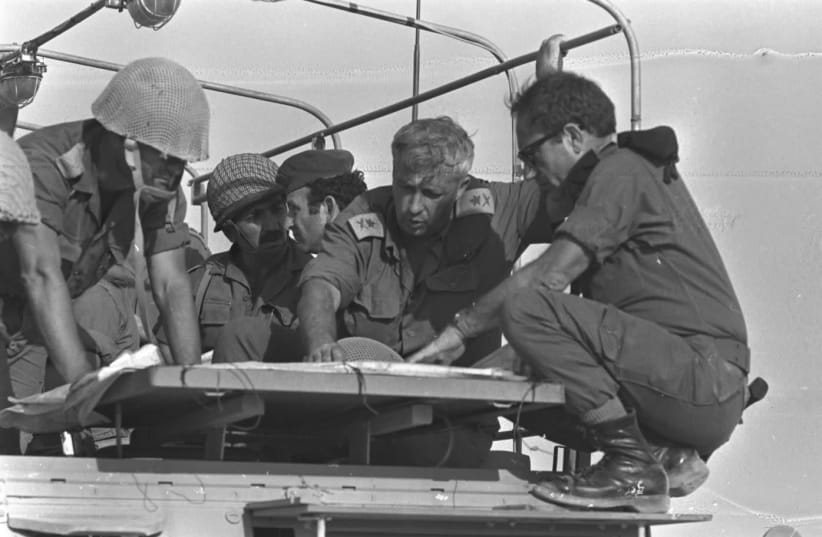In the 64th year after the launching of the Sinai Campaign, Israel suffered a rocket attack from Gaza in the predawn hours of Sunday morning. It was the very day of the commemoration of the Sinai Campaign.
The battle at Sinai was fought primarily in reaction to Egypt’s nationalization of the Suez canal – thereby creating a blockade preventing entry to Eilat – but also to end terrorist incursions by fedayeen into the southern region of the country.
The war against Egypt was fought not by Israel alone, but also by British and French forces. Both Britain and France had significant interests in the Suez Canal. After France and Britain had called for a ceasefire, Israel and Egypt continued with heavy fighting in which 231 Israeli soldiers, many of them reservists, lost their lives.
Speaking on Sunday at Mount Herzl soon after Israel’s retaliation against the rocket attack, both Prime Minister Benjamin Netanyahu and Defense Minister and alternate Prime Minister Benny Gantz attended the memorial ceremony for the fallen heroes of the Sinai Campaign. They attributed the rocket fire attack to Hamas and warned terrorist organizations in Gaza not to try Israel’s patience because any further disquiet would cost Hamas a very heavy price.
President Rivlin also referred in a less direct manner to the rocket attack as he spoke of peace treaties signed with Egypt and Jordan, saying that two generations of Israelis and Egyptians know only peace between their countries. Relating to developments over the last two months, Rivlin mentioned the normalization agreements with the United Arab Emirates, and with Bahrain, adding: “Soon we hope to do so with Sudan and other countries.”
Yet for all that, the president continued, “even now there are those who seek our harm. Our enemies could not beat us then, 64 years ago, and they cannot beat us today. Even when our hand is stretched out in peace, as it always is, we are on guard, watchful, prepared and determined to defend ourselves, by ourselves – at any moment and under any circumstance.”
Aware that in victory there is also loss and pain, Rivlin, addressing the families of the fallen said: “The Suez War ended in a brilliant victory, but that victory had a heavy price. You, the families paid the ultimate price. There is no consolation for the longing. The orphans of that war are today grandparents while they, the fallen, remain young – 19 and 20 years old. We will do everything we can to be worthy of their sacrifice. We will do everything we can to be worthy of the memory of your loved ones.”
